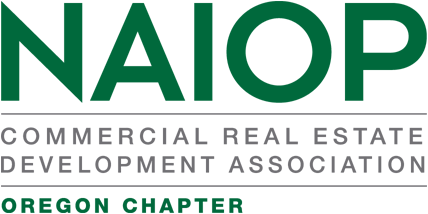Advocating for policies affecting the Commercial Real Estate Industry in Oregon
State-Focused Advocacy Work
Take action with NAIOP Oregon on issues that impact you and defend the CRE industry.
NAIOP Legislative Update
June 2025
SB 426-B, which was the subject of two NAIOP Legislative Alerts, is unfortunately on its way to Governor Tina Kotek’s desk after passing both the Oregon House of Representatives and Senate. NAIOP was successful in securing amendments to lessen the impacts on commercial real estate owners and tenants.
In a nutshell, the bill will make commercial owners and lessees jointly liable for any wages that a construction, reconstruction, excavation, demolition, or maintenance contractor or subcontractor fails to pay to an employee unless the employee is represented by a union. The bill was introduced and pushed strongly by the Carpenters Union and was patterned after similar bills passed in a number of other states.
NAIOP Oregon recognized the potential significant impacts of the bill shortly after it was introduced on January 13th and submitted testimony against in during a Senate public hearing on February 26th. Despite strong opposition from many other business groups, the bill passed out of committee and went to the full Senate on April 9th, when it was approved on an 18-11 vote.
Recognizing that a higher level of opposition was necessary, the NAIOP Board retained longtime Salem lobbyist Scott Barrie to try to kill the bill or amend it in the House of Representatives. Barrie was successful in securing an amendment that limited the provisions to “real property consisting of five or fewer residential or commercial units on a single tract, as defined in ORS 215.010.” ORS 215.010 deals with county land use planning and lists a “tract” as “one or more contiguous lots or parcels under the same ownership.” Nowhere in Oregon law is “unit” defined and it is unclear at this point if it should be interpreted to mean commercial buildings or separate areas within those buildings.
Lobbyist Barrie is now working with a coalition of other business organizations to push Governor Kotek to veto the bill.
The other priority bill for NAIOP during the 2025 legislative session was HB 3062, which would have required all cities to add new burdensome requirements for approving future industrial uses even when explicitly allowed by local zoning regulations. NAIOP joined with a broad based coalition of other business organizations and local governments to oppose the bill and it died in committee.
